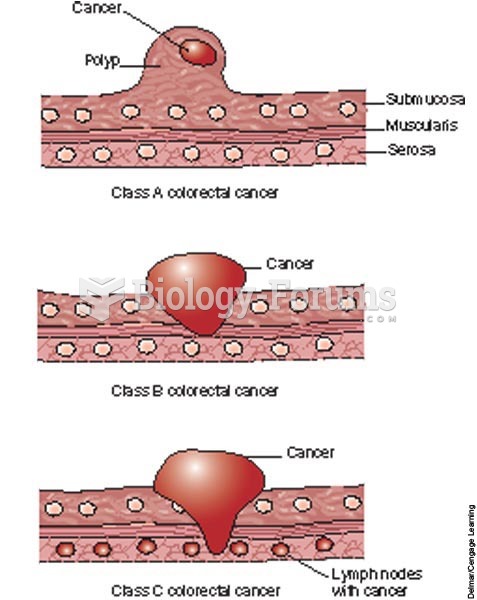Answer to Question 1
1
Rationale 1: This statement is true.
Rationale 2:The schedule is not rigid and varies for the different types of cancer. Some cancer drugs are given as single doses or a couple of doses over a few days.
Rationale 3: There is no set schedule.
Rationale 4: The dosing schedule depends on the type of tumor, the stage of the disease, and the patient's overall condition.
Global Rationale: Specific dosing schedules or cycles have been found to increase the effectiveness of antineoplastic drugs. Some anticancer drugs are given as single doses or perhaps a couple of doses over a few days. This gives normal cells time to recover from the adverse effects of the drugs, especially bone marrow suppression. It also allows tumor cells that may not have been replicating at the time of the first dose to begin dividing and become more sensitive to the next round of chemotherapy. The specific dosing schedule depends on the type of tumor, the stage of the disease, and the patient's overall condition.
Answer to Question 2
1, 2, 4, 5
Rationale 1: Radiation therapy is most successful for cancers that are localized.
Rationale 2: Radiation therapy is used for palliation to shrink tumor size pressing on organs.
Rationale 3: Radiation therapy is prescribed concurrently or postoperatively.
Rationale 4: Radiation therapy is used for 50 of the cancer patients.
Rationale 5:Radiation treatments are frequently prescribed postoperatively to kill cancer cells that may remain following an operation.
Global Rationale: Approximately 50 of patients with cancer receive radiation therapy as part of their treatment. Radiation therapy is most successful for cancers that are localized. Radiation treatments are frequently prescribed postoperatively to kill cancer cells that may remain following an operation. Radiation is sometimes given as palliation for inoperable cancers to shrink the size of a tumor that may be pressing on vital organs and to relieve pain, difficulty breathing, or difficulty swallowing.






